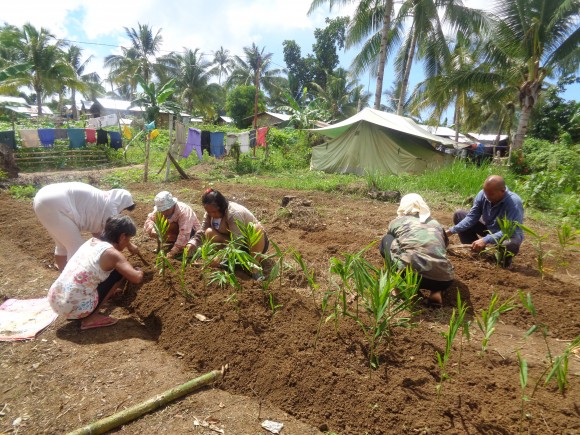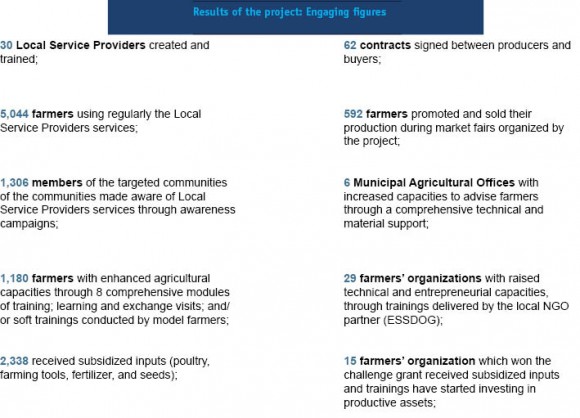In 2013, typhoon Haiyan, described as the most powerful typhoon so far, has ravaged the Philippines. With more than 6,000 deaths and 1,000 missing (NDRRMC data), required urgent humanitarian assistance to provide the needs of vulnerable populations affected by the typhoon.
Typhoon Haiyan caused extensive damage to livelihoods, leaving local economies vulnerable and many people jobless. An estimated 5.9 million people across the Philippines lost their sources of income and livelihoods. The economic impact on Eastern Samar, one of the Philippines’ poorest provinces which is heavily reliant on the agricultural sector, particularly the coconut industry (coconut tree require from four to seven years to restart), was devastating. Many farmers lost their only source of income and huge livelihood losses were recorded. Alliance2015 member NGOs Helvetas Swiss Intercooperation, People in Need (PIN), and ACTED support 12,000 farmers and vulnerable households in 12 municipalities of typhoon-affected Eastern Samar province to restart livelihoods.

Building resilience through sustainable income
A consortium of three Alliance2015 member INGOs Helvetas Swiss Intercooperation, People In Need, and ACTED implement a five-year project in 12 municipalities of Eastern Samar province. Swiss Solidarity and Agence Française de Développement (AFD) support this market development project which helps 12,000 farmers and vulnerable households.
The main objective of the project is to increase the income of poor men and women by addressing the underlying constraints that prevent poor farmers to benefit from market systems. Empowering farmers to restore and improve their livelihoods through increased production, productivity and marketability of agricultural products will improve farmers’ access to livelihoods as well as increasing their resilience to future shocks and vulnerabilities. This project relies on a market-based approach designed to strengthen farmers’ linkages to markets. This approach called Making Markets Work for the Poor (M4P) supports sustainable income generation.

Local Service Providers (experienced and enthusiastic farmers/producers/sellers from local communities) supported by the Project act as the bridge between the private sector and farmers. Local Service Providers support farmers to increase their knowledge and capacity in improved agricultural techniques and business skills as well as facilitating access to quality inputs and services so that farmers have the capacity to re-start and improve their agricultural livelihoods. Improved and more inclusive market systems contribute to farmers being more competitive and having higher and more sustainable incomes.
A video was shot in the Philippines to illustrate this livelihoods initiative: